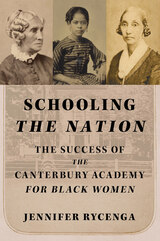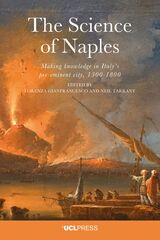7 start with A start with A
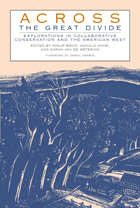
Amid the policy gridlock that characterizes most environmental debates, a new conservation movement has emerged. Known as “collaborative conservation,” it emphasizes local participation, sustainability, and inclusion of the disempowered, and focuses on voluntary compliance and consent rather than legal and regulatory enforcement. Encompassing a wide range of local partnerships and initiatives, it is changing the face of resource management throughout the western United States.
Across the Great Divide presents a thoughtful exploration of this new movement, bringing together writing, reporting, and analysis of collaborative conservation from those directly involved in developing and implementing the approach. Contributors examine:
- the failure of traditional policy approaches
- recent economic and demographic changes that serve as a backdrop for the emergence of the movement
- the merits of, and drawbacks to, collaborative decision-making
- the challenges involved with integrating diverse voices and bringing all sectors of society into the movement
In addition, the book offers in-depth stories of eight noteworthy collaborative initiatives -- including the Quincy Library Group, Montana's Clark Fork River, the Applegate Partnership, and the Malpai Borderlands -- that explore how different groups have organized and acted to implement their goals.
Among the contributors are Ed Marston, George Cameron Coggins, David Getches, Andy Stahl, Maria Varela, Luther Propst, Shirley Solomon, William Riebsame, Cassandra Moseley, Lynn Jungwirth, and others. Across the Great Divide is an important work for anyone involved with collaborative conservation or the larger environmental movement, and for all those who care about the future of resource management in the West.
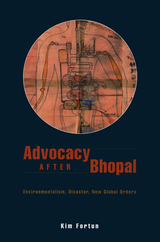
Kim Fortun explores these claims by focusing on the dynamics and paradoxes of advocacy in competing power domains. She moves from hospitals in India to meetings with lawyers, corporate executives, and environmental justice activists in the United States to show how the disaster and its effects remain with us. Spiraling outward from the victims' stories, the innovative narrative sheds light on the way advocacy works within a complex global system, calling into question conventional notions of responsibility and ethical conduct. Revealing the hopes and frustrations of advocacy, this moving work also counters the tendency to think of Bhopal as an isolated incident that "can't happen here."
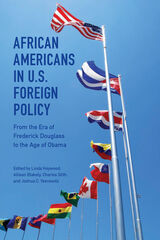
Groundbreaking and critical, African Americans in U.S. Foreign Policy expands on the scope and themes of recent collections to offer the most up-to-date scholarship to students in a range of disciplines, including U.S. and African American history, Africana studies, political science, and American studies.

Reconstructing the dramatic struggle surrounding the building of the New Tokyo (Narita) International Airport near Sanrizuka, this scrutiny of modern protest politics dispels the myth of corporate Japan’s unassailable success. While sensitive to the specific events they describe, the authors provide analyses of broader contemporary issues—the sources of violence in an orderly society and the problems of democratic theory in an institutional setting.
Narita Airport, the largest single government project in Japan, has been the scene of intense conflict over what might be called the unfinished business of Japan as number one. Since 1965, small groups of farmers have been fighting to protect their land, first from the bulldozers, then from the environmental damage of a modern airport. They were joined in the battle by militants from New Left sects, students, and other protesters representing peace, antinuclear, and antipollution issues. Using field observation, in-depth interviewing, and firsthand experience drawn from living in the “fortresses” surrounding the airport, the authors examine the conflict and violence that ensued. They describe the confrontations from the point of view of each group of participants, pinpointing weaknesses in the Japanese political and bureaucratic systems that prolonged and heightened the struggle: the lack of effective due process, inadequate consultative mechanisms outside elite circles, and the failure of local government to represent local issues.
In a broad adaptation of their findings, David Apter and Nagayo Sawa show that the problems of the Narita situation are also endemic to other industrialized countries. Their discussion of violent protest in advanced societies explores how it evolves, who is caught up in it, and the ways that governments respond. Finally, they identify the limitations of contemporary social science theories in addressing in human terms such volcanic eruptions. To overcome these shortcomings they combine several approaches—structural, experiential, and functional—and devise alternative ways to enter the day-to-day lives of the people studied.
Against the State in no way diminishes the magnitude of Japan’s accomplishments. However, the authors find in the Narita protest evidence of that country’s still unfelt need to address its most abstract and pressing moral concerns. Their book raises important questions about the nature of extra-institutional protest and authority in modern states.
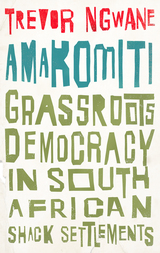
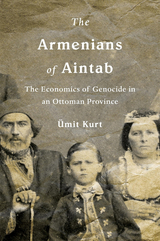
A Turk’s discovery that Armenians once thrived in his hometown leads to a groundbreaking investigation into the local dynamics of genocide.
Ümit Kurt, born and raised in Gaziantep, Turkey, was astonished to learn that his hometown once had a large and active Armenian community. The Armenian presence in Aintab, the city’s name during the Ottoman period, had not only been destroyed—it had been replaced. To every appearance, Gaziantep was a typical Turkish city.
Kurt digs into the details of the Armenian dispossession that produced the homogeneously Turkish city in which he grew up. In particular, he examines the population that gained from ethnic cleansing. Records of land confiscation and population transfer demonstrate just how much new wealth became available when the prosperous Armenians—who were active in manufacturing, agricultural production, and trade—were ejected. Although the official rationale for the removal of the Armenians was that the group posed a threat of rebellion, Kurt shows that the prospect of material gain was a key motivator of support for the Armenian genocide among the local Muslim gentry and the Turkish public. Those who benefited most—provincial elites, wealthy landowners, state officials, and merchants who accumulated Armenian capital—in turn financed the nationalist movement that brought the modern Turkish republic into being. The economic elite of Aintab was thus reconstituted along both ethnic and political lines.
The Armenians of Aintab draws on primary sources from Armenian, Ottoman, Turkish, British, and French archives, as well as memoirs, personal papers, oral accounts, and newly discovered property-liquidation records. Together they provide an invaluable account of genocide at ground level.
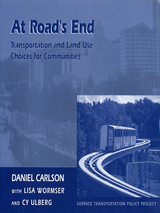
At Road's End is a timely guide to a new era of holistic transportation. It presents new models for transportation planning, describes effective strategies for resolving community disputes, and offers inspiration by clearly demonstrating that new ways of planning and implementing transportation systems can work.
READERS
Browse our collection.
PUBLISHERS
See BiblioVault's publisher services.
STUDENT SERVICES
Files for college accessibility offices.
UChicago Accessibility Resources
home | accessibility | search | about | contact us
BiblioVault ® 2001 - 2025
The University of Chicago Press



